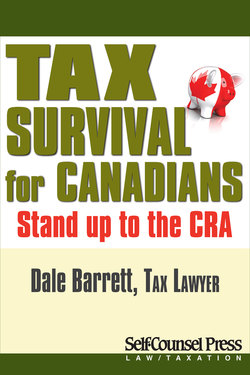Читать книгу Tax Survival for Canadians - Dale Barrett - Страница 17
На сайте Литреса книга снята с продажи.
3.1 Third party confidential information
ОглавлениеCompeting interests exist with respect to third party confidentiality rights in contrast to the taxpayer’s right to access of information from the CRA. There is a strong public policy interest in guaranteeing that taxpayer information remains confidential, hence the balance of these interests often weighs in favor of the taxpayer.
Sometimes, when a taxpayer needs to access the information of another party in order to make his or her case, a balancing test must be performed to see if it is justifiable to release the information of a third party for the benefit of another taxpayer’s case.
For instance, in MNR v. Huron Steel Fabricators (London), the trial judge used the balancing test to determine if the public interest would be harmed by the disclosure of tax returns by a company which was not party to the action. The court’s decision that no public harm existed withstood appeal. Similar decisions have been found when courts determine that the public interest is best served by production of information.
Other cases have provided additional safeguards for taxpayers by further limiting disclosure, such as in the case of Amp of Canada Ltd. v. The Queen, where the court limited the use of the competitor’s materials by imposing restrictions. The court limited the use of the competitor’s information only for the period of litigation; the disclosure was only to be made to expert witnesses and counsel; and the materials were to only be used for the purposes of the litigation.
While there have been cases where confidential information has been disclosed to the CRA, the opposite is also true. Take for instance the case of Crestbrook Forest Industries Ltd. v. The Queen; the corporate taxpayer sought from the CRA during a discovery request, the production of specific information that the CRA had relied on in the tax assessment of the corporation. The source from which the CRA had obtained the information was from a survey.
The participants of the survey were told that providing information during the survey was entirely confidential. Hence, it would be contrary to public interest should confidentiality be broken by providing information obtained under the promise of confidentiality. As such, the Federal Court of Appeal prohibited the production of such information. The court explained in this case that, “where the Crown has obtained information in confidence from taxpayers on a voluntary basis and for a specific and defined purpose, it may not subsequently make use of that information for a different purpose, namely the reassessment of other taxpayers, in circumstances where such use will almost inevitably result in a breach of the Crown’s undertaking of confidence.”
